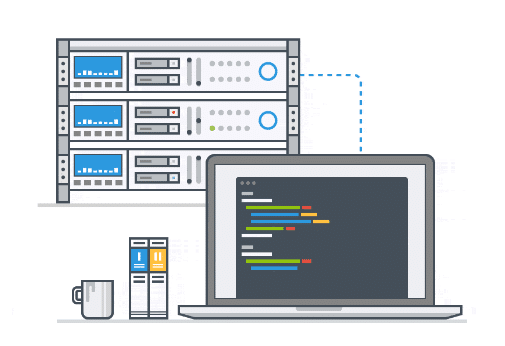We hear it often, “you need what information?” or “why do I need to know that?” … when it comes to creating or updating your website, there are some pieces of technical information that your web development team will need to know. To streamline the process and organize those technical details, we’ve outlined six key things you should know – and bonus – a way to keep track of them.

1. Who Hosts Your Domain?
Your domain host is the Internet hosting service that stores the records regarding your website. When you’re ready to make changes and updates to your site, you’ll need this information to access “the back end” – AKA, the technical, behind-the-scenes parts of your website. As Google explains it, “a domain host is an internet service that manages your domain name, for example, yourdomain.com.”
Some refer to this as your “DNS” information; DNS stands for Domain Naming System – so don’t get confused, its the same thing. Your DNS records typically include things like:
Email addresses
Website URL
Domain settings
Why is this important information? Some go as far as to say that “Domain Name Servers (DNS) are the Internet’s equivalent of a phone book.” Even though we can easily remember domain information like website addresses, computers just don’t. For technical processing, it’s more efficient to use IP addresses.
So what does this look like? It should be your website URL (www.example.com) and your IP address, written in “dotted decimal” format. Your IP address is 4 sets of numbers separated by period each set (example: 16.3.128.12).
2. Who Hosts My Website?
Now we’re throwing another term in the mix, your host. WordPress has a helpful analogy to explain hosting and domains: “A good way to think about this is if the domain name was the address of your house, then web hosting is the actual house that address points to.”
Your website host is essentially a giant online folder where all the files of your website live. Think of it as your website’s home base. Everyone has a host for their website. You’ll want to keep track of your hosting information so that if and when site changes come up, access to the files is possible.
3. What are Access Credentials for My Website?
This is something you may or may not have, but if you don’t – be sure to ask for it! It’s your right to be able to login to your website at any time. If you’re afraid you’ll mess something up or break your website on the backend, that’s OK – you can leave logging in and updating to us experts … but it’s best to have the username and password so that you have it whenever you might need it.
4. What Analytic(s) Tools are You Using for Your Website?
Lorem ipsum dolor sit amet, consectetur adipiscing elit. Ut elit tellus, luctus nec ullamcorper mattis, pulvinar dapibus leo.
Many businesses install different analytic tools on their websites when updating and/or launching. Why? Website analytics provide reports and insights on how your site visitors behave; their age, gender, location, etc., the traffic source – or host they found your site, the popular content or pages, sales conversions, etc.
Though the most popular is Google Analytics, there are a number of tools you can use to get insight into the performance of your website, including:
Regardless of what analytics tool(s) you are using on your website, having the information for the account and tracking code on hand will make things smoother when you need it.
5. When Does Your Domain Need to be Renewed?
Long story short, your domain can expire. When you purchase and secure your domain, it comes with a date of renewal. If you do not, for some reason, renew your domain and it does expire – try to catch it as soon as possible. It is possible that someone else can take the domain once it expires. Domain.com has more information here on what to do if you fail to renew your domain.
This is short and sweet: write down when your domain needs to be renewed, put it in your calendar, and maybe even a co-worker’s calendar for safe measure.
6. Who Gets Website Form Submissions?
Do you have a “Contact Us” form on your website? Or maybe a “Request More Info”? Maybe both? When you build your website, make sure you keep a running document of what form submissions get sent to which people and/or email addresses. Knowing who should be getting information from the website will not only keep you organized and ensure someone is following up with inquiries, but it will also streamline communication needs when website changes are made.
There you have it, six of the most important pieces of information regarding your website to document and keep track of. We’ve included a PDF download for you to print our digital organization sheet for safe-keeping.
CONTACT US
